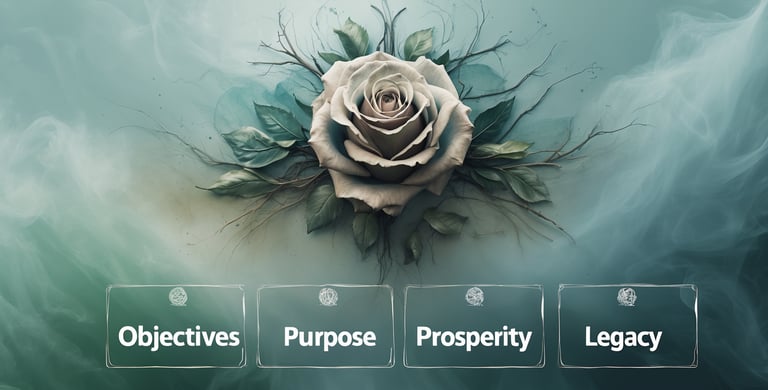Fruits and Faults: By Your Deeds and Works Shall Your Quality Be Known
Justice Demands Evidence, Not Intention
4FORTITUDEO - OBJECTIVES, PURPOSE, PROSPERITY, LEGACY
Fruits and Faults: By Your Deeds and Works Shall Your Quality Be Known
Justice Demands Evidence, Not Intention
A sacred scroll on the virtue of moral discernment through action, not affectation—written for the man who builds his legacy through discipline, not declarations.
“Ye shall know them by their fruits. Do men gather grapes of thorns, or figs of thistles?” — Matthew 7:16
I. The Root Test of a Man’s Worth
You will be weighed—not by your potential, your charisma, or your professed beliefs—but by what your life leaves behind. In this, the ancients spoke plainly. The Stoic did not ask how you felt about virtue. He asked how you lived. The Scriptures offer no doctrine without deeds. The true test of a man’s worth is not found in his moods, but in his harvest.
A man’s fruit is not a metaphor—it is the tangible yield of his thoughts disciplined into action. When pressed, what spills out? What remains when no one is watching? What echoes long after his presence fades?
In a culture obsessed with branding and signaling, this truth burns: A man is his pattern. His outcomes. His echoes.
II. Faults of the Talkers and Thinkers
The thinker may theorize justice, but fail to pay his debts. The preacher may cry against sin, yet abuse his own family. The activist may champion the oppressed while sowing division. These are not contradictions. They are falsehoods revealed by fruit.
“The fault lies not in the stars, but in ourselves.” — Shakespeare
The age of performative virtue has birthed a plague of unmeasured men—souls detached from their own actions. Hypocrisy is not merely failure—it is a fracture of integrity. Spiritual bypassing cloaks pride in holy language. The man who speaks of peace while leaving his household in disarray has betrayed the very logos he claims to serve.
Justice is not in the claim but in the cost. Those who live from virtue suffer to maintain it.
“Do not be deceived: God is not mocked. For whatever one sows, that will he also reap.” — Galatians 6:7
III. Fruit as Legacy: Deeds, Consequences, and Echoes
Every act is a seed. And seeds do not disappear—they compound.
Three layers of fruit bear witness to a man’s moral fiber:
Immediate consequence: What is seen—your actions in the moment. This is the fruit in hand.
Long-term consequence: The trajectory of your habits. This is the arc of your character.
Generational consequence: What your children inherit. This is your orchard.
“A good man leaves an inheritance to his children’s children.” — Proverbs 13:22
Real fruit is not loud. It is stable under pressure, consistent when unwatched, and often hidden in acts too small for applause.
Legacy is not a mythic idea. It is your daily output, scaled across time.
Ask yourself: Do your choices today honor your unborn descendants? Or will they curse your name as one who planted weeds?
IV. The Metrics of Moral Accountability
Justice is not vague. It can be audited. Here is the soul’s scorecard:
Do your works benefit the weak, or glorify the self?
Does your strength build refuge, or stage performance?
Do they restore order, or create noise?
Does your voice heal, clarify, strengthen—or scatter, inflame, distract?
Do they align with your professed virtue-identity?
Is your creed matched by your contracts, your rituals, your tone?
Do they stand under pressure, contradiction, and time?
Are your actions repeatable under duress, or merely rhetorical in safety?
The man who cannot pass this audit is not condemned—but he is called. Justice demands that he reconcile his echo with his essence.
V. The Garden You Grow
Look at your life not as a collection of intentions, but as a field under cultivation. Each morning, you sow. Each evening, you water or neglect. And the harvest, in due time, will speak more clearly than any autobiography.
“Every tree that does not bear good fruit is cut down and thrown into the fire.” — Matthew 7:19
Let that truth not make you afraid—but awake.
You are not what you feel. You are not even what you believe.
You are what grows because of you.
You are the garden you grow.
Embodiment & Transmission
Ritual Audit: Weekly, write down three deeds. Categorize them: immediate, long-term, generational.
Family Fruit Map: Chart how your actions shape your children’s worldview.
Creed-Contract Alignment Drill: Compare what you claim to believe vs. what your schedule shows.
Service Before Signal: Each week, perform one act of virtue with no witness.
Legacy Ledger: Keep a journal not of moods, but of measurable fruit.
Fortress of Integrity Ritual: Choose one value (e.g., courage) and track 7 days of practice.
Echo Exercise: Ask one person: “What do my deeds say about my values?”
Prune the False Tree: Identify one habit that yields sour fruit—cut it.
Build a Teaching Garden: Instruct your children not in beliefs, but in building fruit. Let them see it.
End-of-Life Vow: Write the sentence you want spoken over your grave. Now reverse engineer it.
Final Charge & Irreducible Transmission
Call-to-Action: Stop speaking. Start planting. Stop signaling. Start cultivating.
Sacred Question: If every man were judged only by the echoes of his deeds, what would your orchard say?
Remember: Fruit is the proof of truth.
Two Bold Actions: This week, do one good work your past self would admire—and one your child can inherit.
The world is watching your fruit, not your claims.
Let your orchard answer. Let justice be seen, not spoken.


